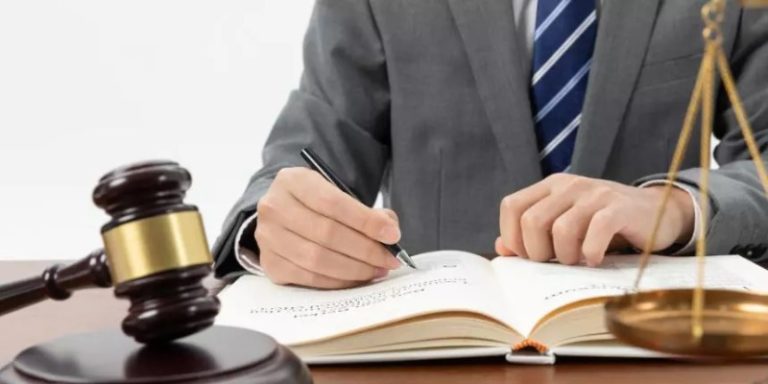Discover your rights during a DWI stop with our comprehensive guide. Learn about the legal framework, common misconceptions, and steps to take if arrested. Stay informed and protect yourself effectively.
Introduction
What is a DWI Stop?
A DWI stop occurs when law enforcement suspects you of driving under the influence of alcohol or drugs. This encounter is not just a routine traffic stop but a significant legal event that can have serious repercussions. Understanding your rights during such a stop is crucial. Whether you’re pulled over for erratic driving or a checkpoint stop, knowing what to expect and how to respond can make a significant difference in the outcome of the situation.
Why Knowing Your Rights Matters
The legal landscape surrounding DWI stops is complex. Knowing your rights can help you avoid self-incrimination and ensure that any evidence used against you is legally obtained. Ignorance can lead to costly legal battles and personal consequences. By being informed, you can better navigate the situation and protect yourself from potential abuse or errors in the legal process.
Understanding DWI Stops
The Basics of DWI Stops
When an officer initiates a DWI stop, it usually follows an observed traffic violation or suspicion of impairment. The officer’s role includes assessing your condition, conducting field sobriety tests, and potentially administering breathalyzer tests. Your responsibilities involve providing identification and cooperating to a degree, but you also have the right to refuse certain tests and seek legal advice.
Legal Framework for DWI Stops
DWI laws vary by state but are governed by both federal and state regulations. Key legal precedents shape how these laws are enforced, and understanding these can be crucial in defending your rights. For instance, recent changes in legislation might affect how evidence is gathered or how penalties are assessed.
The Process of a DWI Stop
During a DWI stop, the process typically involves an initial interaction with the officer, who may ask you to perform field sobriety tests. These tests assess your coordination and balance. If the officer suspects impairment, you might be asked to take a breathalyzer or submit to a blood test. Each stage of this process has specific legal and procedural requirements that protect both you and law enforcement.
Your Rights During a DWI Stop
Right to Remain Silent
You have the right to remain silent during a DWI stop. This means you do not have to answer questions that might incriminate you. For example, you can politely decline to discuss your drinking habits or your destination. This right is fundamental and can help prevent self-incrimination during the encounter.
Right to Refuse Field Sobriety Tests
Field sobriety tests are designed to assess your physical coordination. However, you have the right to refuse these tests. Refusal can lead to certain penalties, such as license suspension, but it may also prevent potentially flawed or unfair test results from being used against you.
Right to Refuse Breathalyzer Test
Breathalyzer tests measure your blood alcohol concentration. While refusing this test can result in immediate consequences like license suspension, it may be beneficial in certain scenarios. It’s crucial to understand the legal implications of refusal, as laws vary significantly across states.
Right to Legal Representation
At any stage of a DWI stop, you have the right to seek legal representation. If you are arrested, you can request an attorney before answering any questions or performing any tests. Having a legal expert by your side can significantly impact the outcome of your case and ensure your rights are upheld.
Right to an Explanation of Charges
If charged with a DWI, you have the right to understand the nature of these charges. This includes knowing what specific violations you are being accused of and the evidence supporting these claims. Being informed about the charges allows you to prepare an adequate defense.
Right to Challenge Evidence
You have the right to challenge the evidence presented against you. This can include questioning the accuracy of breathalyzer results or the validity of field sobriety tests. Challenging evidence can be a crucial part of defending yourself in court.
Right to Be Treated Fairly
Fair treatment during a DWI stop is a fundamental right. This means you should be treated with respect and not subjected to unnecessary searches or harassment. If you believe you were treated unfairly, you have the right to report this behavior and seek redress.
Common Misconceptions and Mistakes
Misconception: You Must Cooperate Fully
One common misconception is that you must fully cooperate with all requests made by law enforcement. While you are required to provide certain information, such as your license and registration, you are not obligated to perform field sobriety tests or answer questions that may incriminate you.
Mistake: Agreeing to Tests Without Knowledge
Agreeing to take tests without understanding their implications can be a costly mistake. Always be aware of the potential consequences of any test you agree to and understand your rights before making any decisions.
Misconception: Ignoring the Situation Will Help
Ignoring a DWI stop or failing to address the situation can lead to more severe consequences. It’s important to handle the situation appropriately, including complying with basic requests and seeking legal counsel if necessary.
Steps to Take After a DWI Stop
Immediate Actions
If arrested, your immediate actions should include remaining calm and not arguing with law enforcement. Provide requested documents and follow instructions, but avoid self-incrimination. Contact a lawyer as soon as possible to discuss your case.
Legal Follow-Up
After a DWI stop, the legal follow-up involves contacting an attorney who specializes in DWI cases. They can help you understand the charges, prepare for court, and advise on the best course of action to take.
Documenting the Incident
Documenting details of the DWI stop can be crucial. This includes noting the time, location, and any interactions with law enforcement. Collecting evidence such as video recordings or witness statements can support your defense.
Understanding Your Court Case
Prepare for your court case by understanding the legal process and the potential outcomes. Work with your attorney to build a strong defense and ensure you are ready for all court proceedings.
Fighting for Justice After a Wrongful DWI Arrest
Identifying a Wrongful Arrest
A wrongful DWI arrest might be indicated by procedural errors or violations of your rights. If you believe your arrest was wrongful, it’s essential to identify the specific issues and gather evidence to support your claim.
Gathering Evidence
To fight a wrongful DWI arrest, collect all relevant evidence, including witness testimonies, video footage, and any documentation related to the stop. This evidence can help demonstrate that the arrest was unjustified.
Seeking Legal Remedies
You have several options for challenging a wrongful arrest, including filing a complaint or seeking a dismissal of the charges. Work closely with your attorney to explore all available legal remedies.
Preventive Measures for Future
To avoid future wrongful arrests, ensure you are well-informed about your rights and how to handle a DWI stop. Practicing safe driving and being aware of legal changes can also help prevent such situations.
Conclusion
Understanding your rights during a DWI stop is essential for protecting yourself legally. Know your rights to remain silent, refuse tests, and seek legal representation. Being informed can help you navigate the situation effectively and avoid potential legal pitfalls.
If you find yourself facing a DWI stop or charge, seek legal counsel immediately. Educate yourself about your rights and the legal process to ensure you are well-prepared. For further information and resources, consult legal experts and continue to educate yourself on your rights and responsibilities.










